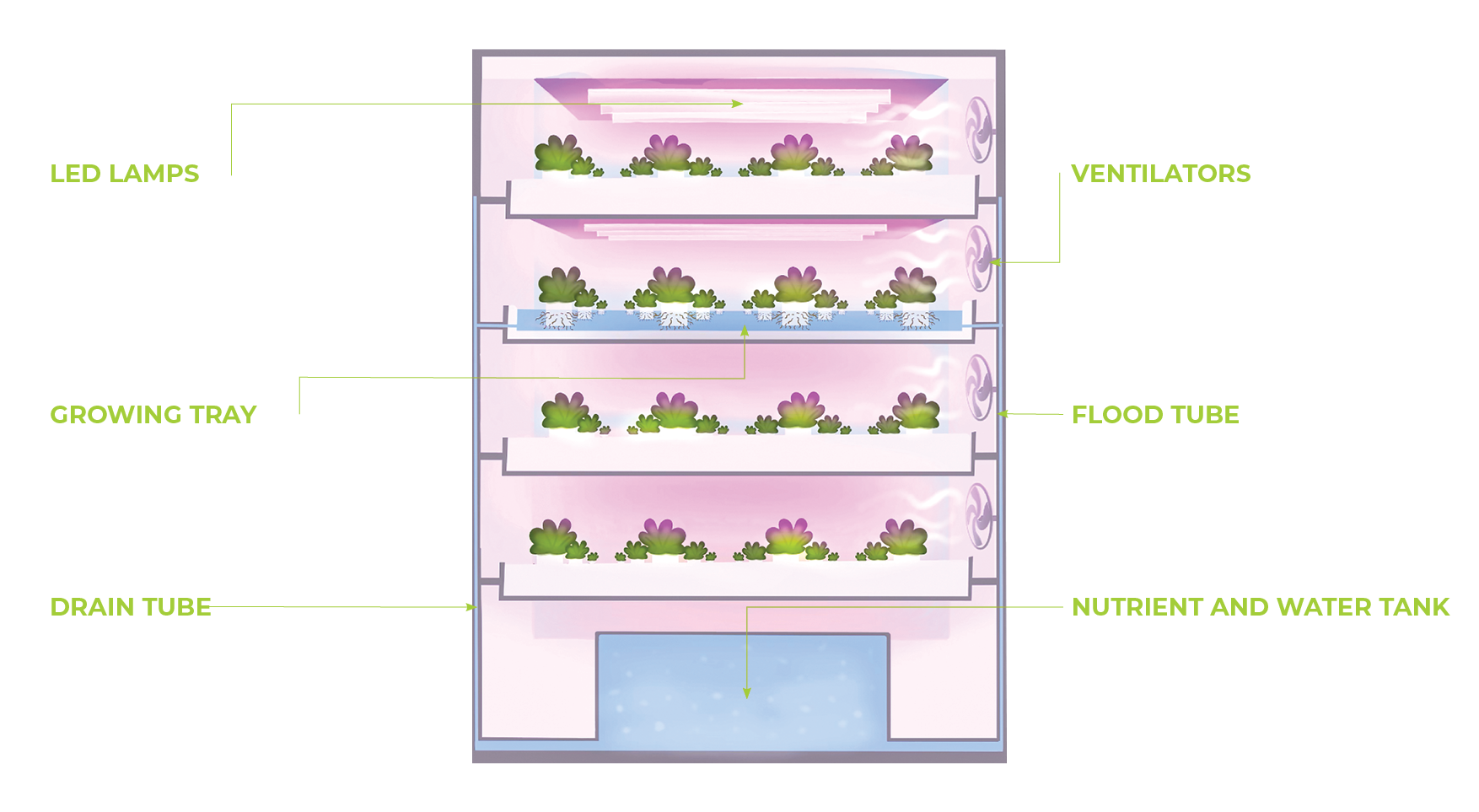Vertical farming
Global urbanisation and water shortage require the search for new agricultural alternatives. The ever-growing population is putting increasing pressure on food supplies. Traditional agriculture faces a number of challenges, such as scarcity of arable land and climate change.
Vertical farming uses more sustainable production methods that are a response to environmental and social problems. It allows the world to adapt more easily to rapidly changing circumstances.
Egreen Farming’s innovative technologies contribute to a sustainable future. They ensure efficient and sustainable food production for future generations.

95%
less water

99%
less land

100%
predictable yield

100%
weather independent

100%
chemical free
8 interesting facts about vertical farming
1. Water saving: requires 90% less water than traditional methods
2. Space optimization: less space is needed due to the vertical structure.
3. Year-round cultivation: independent of environmental factors.
4. Reduced carbon footprint: Up to 100% water and energy supply is possible through recycling.
5. Chemical-free: no pesticides are used in this form of hydroponic farming.
6. Less land use: cultivation takes place in enclosed spaces, so it can be done almost anywhere.
7. Increased food safety: it can ensure the best possible quality under controlled conditions.
8. Increasing nutritional value: due to the controlled conditions, certain characteristics of the plants can be positively improved, such as vitamin content.



